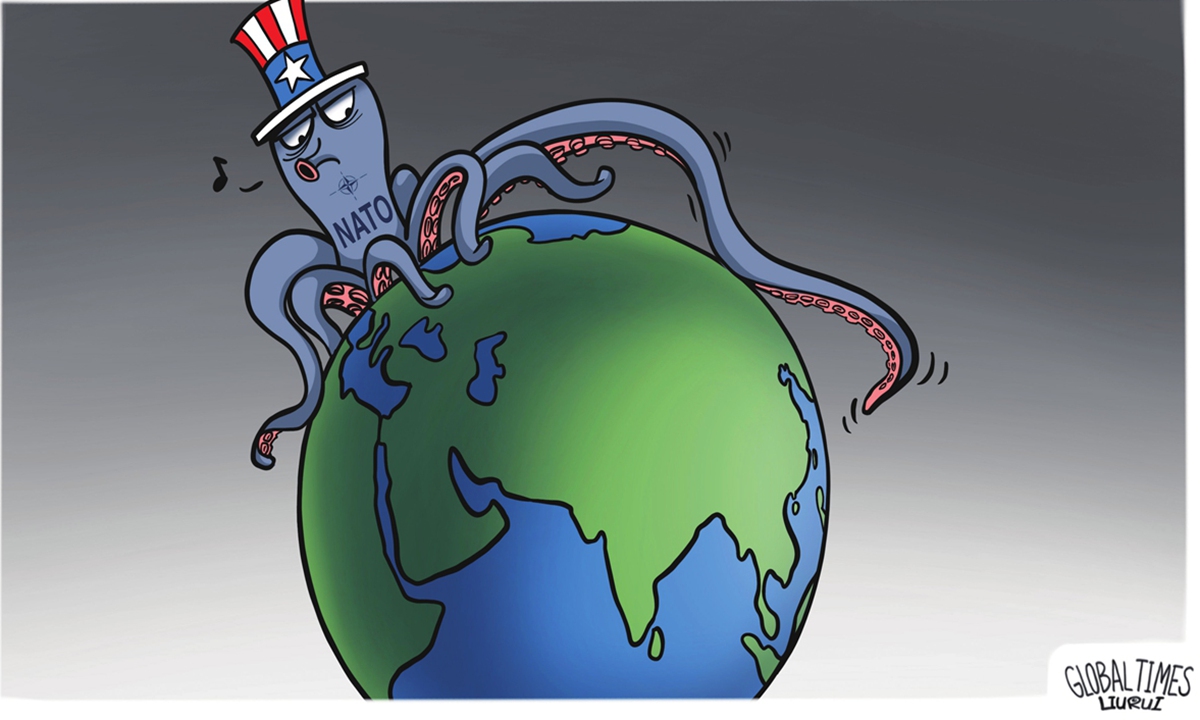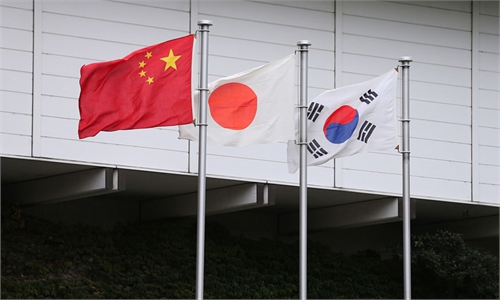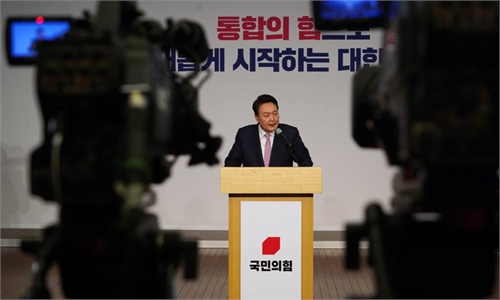
Illustration: Liu Rui/GT
South Korea's state intelligence agency, the National Intelligence Service, said on Thursday that it has joined the NATO Cooperative Cyber Defense Center of Excellence as the first Asian member, according to Yonhap.
Cyber defense has been part of the military alliance's core task of collective defense. By cooperating with South Korea's spy agency, the US-led NATO is attempting to turn the Northeast Asian country into a chess piece to contain China and Russia in the realm of cyber defense. It has extended its cyber defense to the Korean Peninsula, Northeast Asia and even the Indo-Pacific region, paving the way for the interference of Western forces in regional geopolitical affairs.
Da Zhigang, director of the Institute of Northeast Asian Studies at Heilongjiang Provincial Academy of Social Sciences, told the Global Times that South Korea joining NATO's cyber defense cooperation offers room for the country to join other US-led intelligence mechanisms. Last year, the National Defense Authorization bill for fiscal year 2022 from the US House of Representatives already required the US administration to consider expanding the Five Eyes alliance to include South Korea and three others if enacted.
"If the US is to contain China or Russia and wins in actual military conflict, it must gain an upper hand in intelligence-gathering. The rearrangement of the US-led cyber and intelligence groups aims to create a global network," said Song Zhongping, a Chinese military expert and commentator.
South Korea under the incoming administration of Yoon Suk-yeol is believed to enhance ties with the US. The country will welcome US President Joe Biden later this month, his first trip to Asia since coming into office. South Korea is also considering attending the NATO summit slated for late June. Yoon has said he will "positively review" South Korea's joining of Quad if invited.
Seoul is betting its own security on the US-led groupings. However, Song noted that if Seoul deepens cooperation with NATO or even joins NATO, it would only make itself more insecure.
"South Korea's security can only be ensured when it builds mutual trust with neighboring countries, rather than becoming the political and military henchman of NATO," said Song.
It is also worth noting that what serves US interests does not necessarily serve its allies. Although the US wants to expand its military outreach globally, it is not easy for NATO to expand to the Indo-Pacific region.
"Most NATO member states are EU countries who have already been badly battered by the crisis on their own soil. They do not want to be dragged into any crisis in Asia, nor do they want to overdraft the limited resources. NATO expansion to Asia fits the interests of only a few NATO members, such as the UK," said Song, adding that the US may want to achieve the globalization of NATO, but face the realistic problem of catering to all.
NATO is a defensive organization in rhetoric only, while its actions can amount to the definition of an "aggressor." The US knows clearly what consequences Ukraine would face by inciting it to join NATO, but it still led Ukraine to embark on a path of no return.
While Ukraine's joining NATO could provoke Russia's sense of insecurity, what South Korea does might trigger more confrontation with its neighbors, including China, Russia and North Korea, which may cause turbulence in the region, warned Song.
NATO is trying to expand to China's periphery. By trying to create an Asian version of NATO, the US will seriously undermine economic cooperation and prosperity in Asia, and bring about new divisions to the regional geopolitical and geo-economic landscape. Washington's intention to turn an Asia-Pacific country into a frontier of geopolitical confrontation is not in the interests of regional countries including South Korea.


